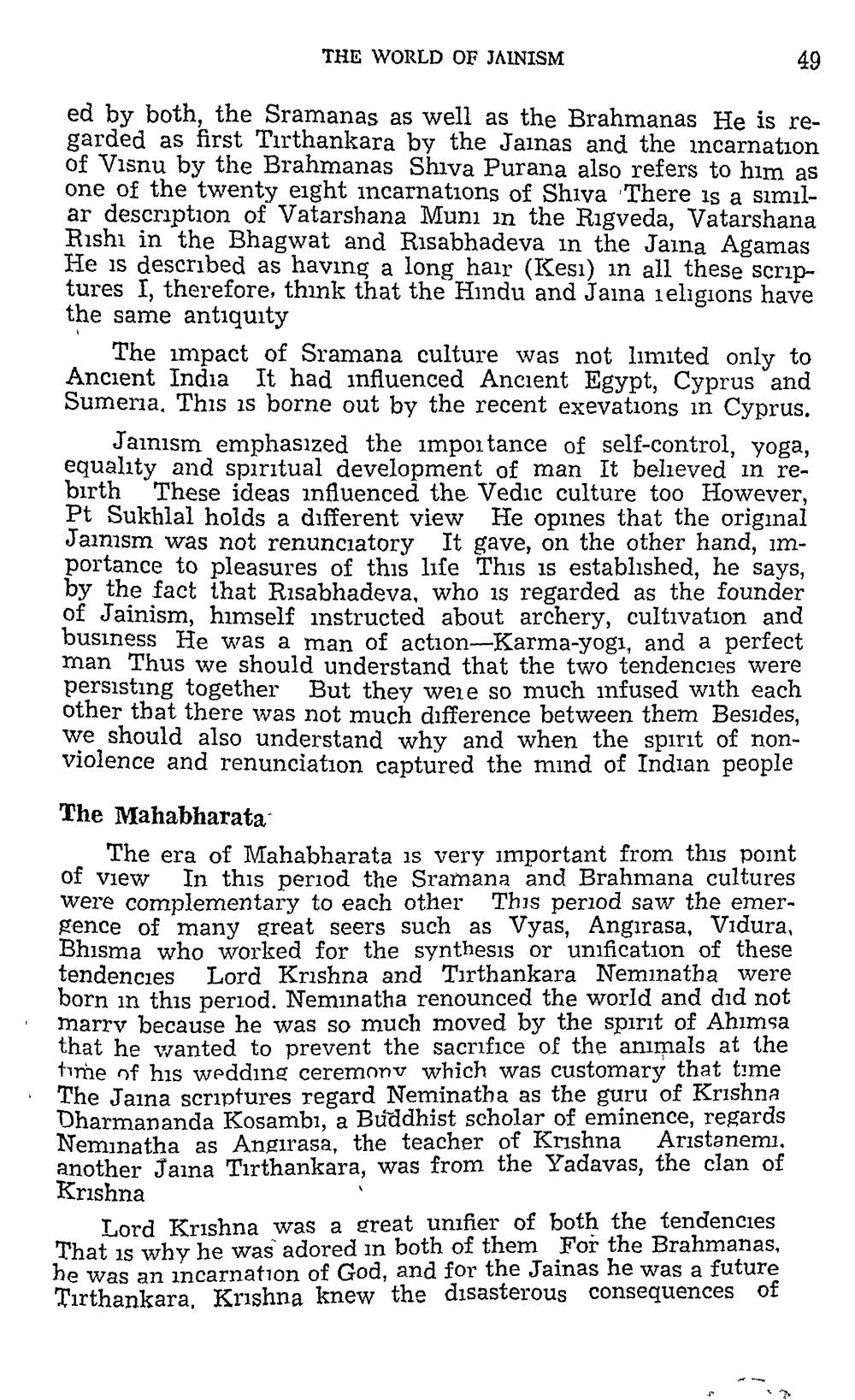________________
THE WORLD OF JAINISM
49
ed by both, the Sramanas as well as the Brahmanas He is regarded as first Tirthankara by the Jainas and the incarnation of Visnu by the Brahmanas Shiva Purana also refers to him as one of the twenty eight incarnations of Shiva There is a similar description of Vatarshana Muni in the Rigveda, Vatarshana Rishi in the Bhagwat and Risabhadeva in the Jaina Agamas He is described as having a long hair (Kesi) in all these scriptures I, therefore, think that the Hindu and Jaina 1eligions have the same antiquity
The impact of Sramana culture was not limited only to Ancient India It had influenced Ancient Egypt, Cyprus and Sumeria, This is borne out by the recent exevations in Cyprus.
Jainism emphasized the importance of self-control, yoga, equality and spiritual development of man It believed in rebirth These ideas influenced the Vedic culture too However, Pt Sukhlal holds a different view He opines that the original Jainism was not renunciatory It gave, on the other hand, importance to pleasures of this life This is established, he says, by the fact that Risabhadeva, who is regarded as the founder of Jainism, himself instructed about archery, cultivation and business He was a man of action-Karma-yogi, and a perfect man Thus we should understand that the two tendencies were persisting together But they were so much infused with each other that there was not much difference between them Besides, we should also understand why and when the spirit of nonviolence and renunciation captured the mind of Indian people
The Mahabharata
The era of Mahabharata is very important from this point of view In this period the Sramana and Brahmana cultures were complementary to each other This period saw the emergence of many great seers such as Vyas, Angırasa, Vidura, Bhisma who worked for the synthesis or unification of these tendencies Lord Krishna and Tirthankara Neminatha were born in this period. Neminatha renounced the world and did not marry because he was so much moved by the spirit of Ahimsa that he wanted to prevent the sacrifice of the animals at the time of his wedding ceremony which was customary that time The Jaina scriptures regard Neminatha as the guru of Krishna Dharmananda Kosambi, a Buddhist scholar of eminence, regards Neminatha as Angırasa, the teacher of Krishna Aristanemi. another Jaina Tirthankara, was from the Yadavas, the clan of Krishna
Lord Krishna was a great unifier of both the tendencies That is why he was adored in both of them For the Brahmanas, he was an incarnation of God, and for the Jainas he was a future Tirthankara, Krishna knew the disasterous consequences of




